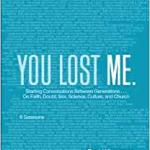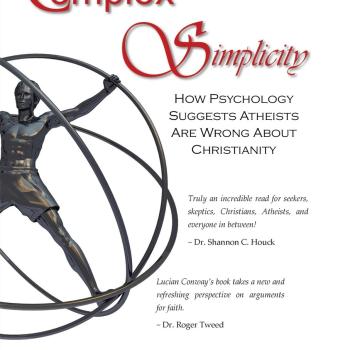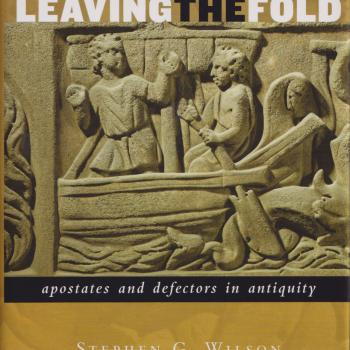
Readers of this column will be aware that I am a researcher specializing on the topic of religious deconversion. As a researcher I am, understandably, expected to do research. There are four philosophical assumptions one must consider when one sets out to do research. These are as follows:
- Ontology. Ontology questions the essential nature of what is real and true in the world – which is not to be confused with whether or not we can know or discover the truth, but rather is there a single defining truth to reality, or multiple “truths,” or no truth at all. In research, one would not, presumably, assume that there is no truth, but one might assume that various perspectives create various truths, and that to assume a single defining truth would devalue these perspectives. Alternatively, the researcher might assume a single truth which may be arrived at by combining and examining themes within perspectives.
- Epistemology. This assumption questions the methods by which an individual or institution might arrive at an understanding of truth, and how reliable that understanding may be based on those methods. It also questions what counts as “knowledge,” versus opinion, assumption, or belief.
- Axiology. Axiology is a question of values. Given that one’s values are what motivates one to research, examining the values that underlie the research is an important factor in utilizing that research. In the broader field of science, research has frequently been done simply for knowledge’s sake. However, in Silicon Value research might be motivated by a desire to design more effective technology. In the field of psychology, research is frequently performed as a means by which behaviors or mental health may be improved.
- Methodology. Methodology is simply the means by which the research is done in order to arrive at a conclusion. Methodology might involve surveys and statistics, interviews, or mere observation.
Research Interest Area
My area of interest in research is Deconversion. By Deconversion, I mean the process by which a person transitions away from their self-identification as Christian and arrives at a self-identification of irreligious (atheist, agnostic, or similar labels). This is to be distinguished from similar research which asks the broader question of how a people stop identifying as Christians, but not how they arrive at a new identifier to describe themselves.
Philosophical Assumptions in Deconversion Research
Ontology
Some Deconversion researchers, such as John Marriott of Biola University (2014) or David Kinnaman of the Barna Group (2016) do not disguise their identity as a Christian, and their objective to identify ways in which Christianity can improve its methods and approaches to prevent the loss of believers the church is experiencing. Others, such as Norenzayan and Gervais (2013) are openly atheistic, and do not hide their critical approach towards religion in the research they publish. In both cases, the researchers evidently hold that there is an ontological reality in which religion is objectively true or false, rather than an alternative view which might suggest that religion is simply a framework through which an individual understands the world. Others, such as Streib (2004, 2021) examine the values and personalities of individuals who deconvert in comparison to those who remain religious to discover how those values and perspectives shift. This may represent an approach to ontology which suggests that a person’s values and experiences shape his or her reality.
Epistemology
Epistemology is a question of some importance in deconversion research, as the examination of how a person comes to hold a religious belief, doubt that belief, and transition to disbelief is crucial to the research. The population which exits religion is overwhelmingly composed of individuals who were raised within a religious environment, and so came to hold those beliefs primarily through environmental osmosis (Kinnaman & Hawkins, 2016).
Atheist and academic Peter Boghossian (2013) pioneered a technique specifically designed to talk people out of their religious beliefs. This technique, called “Street Epistemology,” involves questioning the person about the reasons by which they came to hold the beliefs, and then asks them if those reasons justify certainty in that belief. Given that most deconverts grew up in the church, the reason for which they hold the belief is largely because they were told it was true from a young age. Frequently they find that this is not reason enough to maintain certainty.
Axiology
With the exception of the researchers mentioned above, most individuals who have published on the phenomenon of deconversion do not express any obvious bias in their research, and present their findings in an information-for-information’s sake format. Doubtless every researcher has a position on the subject of religion, but, in large, most researchers manage to present their findings without revealing their biases.
In discussion of Axiology, however, it might be worthwhile to return to the researchers mentioned above. Kinnaman is a researcher for the Barna Group, a religious research organization. His books on the subject of deconversion offer suggestions to churches on methods of preventing or stemming the exodus of young people from the church. Similarly, Marriott is currently engaged in building The Sustainable Faith Project, using research to buffer and support Christianity in America.
On the reverse side, the American Atheists published a study (Frazer et al., 2020) about the rise in atheism and the decline in religion in America, the stated purpose of which was political activism against the influence of religion in government, and religious discrimination against atheists.
In all of these instances, the research has had a “call to action” flavor in which the researcher has done the work with a stated purpose of social reform.
Methodology
The methodology employed in deconversion studies tends to be qualitative. Grounded Theory is a popular approach, having been used by Marriott (2014) as well as another landmark study on the subject (Sergio & Vallieres, 2019). Other researchers have harvested deconversion stories from online forums for ex-Christians, and analyzed these stories for themes and trends (Starr et al., 2019).
My own initial (and as-yet unpublished) foray into deconversion research was to gather autobiographical information of high-profile deconverts which they had repeated across multiple platforms (interviews, videos, blogs, and books). By comparing the repeated stories of these individuals, I was able construct a phenomenological report on what the deconversion experience was for that person. By comparing these reports, I was able to mine them for themes and trends to form my model.
It is not my intention at this stage to use my research as a platform to advocate for a cause. Should others choose to use my research to that end, it is their right to do so, but I personally tend to be a bit cautious when the goal of the research at the outset is to affect some kind of social change, because that seems to run the risk of biasing the research from the outset.
Above I have listed several researchers who have done their work with a goal in mind. I have found the work of these researchers to be enlightening and helpful in my own work, and I mean no insult to them when I say I tend to be cautious of that approach. I am only responsible for my own work, and have opted for an approach which prioritizes curiosity and accuracy above all else.
References
Boghossian, P. (2013). A manual for creating atheists. Pitchstone.
Creswell, J. W., & Poth, C. N. (2018). Qualitative Inquiry & Research Design: Choosing among Five approaches. SAGE.
Frazer, S., El-Shafei, A., Gill, A.M. (2020). Reality Check: Being Nonreligious in America. American Atheists.
Kinnaman, D., & Hawkins, A. (2016). You lost me: Why young Christians are leaving Church … and rethinking faith. Baker Books.
Marriott, R. J., (2014). The Cost of Freedom: A Grounded Theory Study of the Impact of Deconversion from Christianity to Atheism. Biola University. La Mirada, CA.
Norenzayan, A., & Gervais, W. M. (2013). The origins of religious disbelief. Trends in Cognitive Sciences, 17(1), 20–5. https://doi.org/10.1016/j.tics.2012.11.006
Sergio, P., & Frédérique Vallières. (2019). How do religious people become atheists? applying a grounded theory approach to propose a model of deconversion. Secularism and Nonreligion, 8, 3–3. https://doi.org/10.5334/snr.108
Starr, C., Waldo, K., & Kauffman, M. (2019). Digital irreligion: Christian deconversion in an online community. Journal for the Scientific Study of Religion, 58(2), 494–512. https://doi.org/10.1111/jssr.12599
Streib, H., & Keller, B. (2004). The variety of deconversion experiences: contours of a concept in respect to empirical research. Archive for the Psychology of Religion, 26(1), 181–200.
Streib, H. (2021). Leaving religion: deconversion. Current Opinion in Psychology, 40, 139–144. https://doi.org/10.1016/j.copsyc.2020.09.007Links to an external site.














